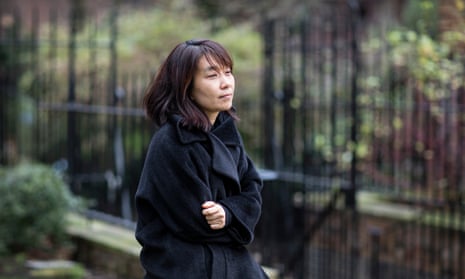Two thirds of the way into Human Acts, a victim of the torture carried out during the 1980 Gwangju uprising in South Korea remarks of the Korean platoons who had previously committed atrocities in Vietnam: “Some of those who came to slaughter us did so with the memory of those previous times.” Pages later, we’re reminded of a remark made by President Park Chung-hee’s bodyguard: “The Cambodian government’s killed another two million of theirs. There’s nothing stopping us from doing the same.” It leaves little reason to doubt the veracity of the novel’s assertion that “There is no way back to the world before the torture. No way back to the world before the massacre.”
When Park, South Korea’s military dictator, was assassinated in 1979, civil unrest ensued and martial law was imposed. Recently unionised workers protested their working conditions. Greater democratisation was called for and the increasingly authoritarian government responded in the traditional fashion. On 18 May 1980, protesting students at Jeonnam University were fired upon and beaten by government troops. Outrage was widespread and citizens of all ranks took to the streets in solidarity. Special forces were sent in but, rather than calming the situation, the soldiers – spurred on to ever greater acts of brutality by their superiors – clubbed and bayonetted students, and fired live rounds into the crowds. By 27 May it was over. Figures for civilian deaths remain disputed, running anywhere between the military statistic of 200 and the 2,000 estimated by some foreign press reports. What is not disputed is the appalling cruelty inflicted on those tortured by police in the aftermath, the suffering of the many bereaved and the long shadow the uprising still casts across the South Korean consciousness.
The final chapter of this novel is about Han Kang’s own connection to the uprising. Gwangju is her hometown: her family had moved to Seoul by the time of the uprising although none of her relatives was killed. But Dong-ho, a 15-year-old boy who was part of the family who bought their house, was; and it is this death that functions as both entry and exit wound for the novel. It opens with him helping to clean, tag and lay out corpses for identification in the municipal gymnasium. From there the author spins out into the stories of a representatively selected group of victims and survivors. After we are presented with the corpse of the boy’s friend, lying in a stack of bodies left to rot in the heat, Han shifts forward to 1985 and an editor struggling to manoeuvre a book on the subject past the censor. In a series of encounters, she then moves to 1990 when a prisoner is persuaded to relive the horrors of his torture for the sake of an academic’s thesis. In 2002 a former factory girl recounts her brutalisation at the hands of the torturers and the estrangement from her own humanity she has struggled with ever since. In 2010 Dong-ho’s mother speaks of the emotional legacy of that loss and the struggle for justice. Finally, the writer writes of her own journey into the novel and the terrible price of atrocity.
This is a book that could easily founder under the weight of its subject matter. Neither inviting nor shying away from modern-day parallels, Han neatly unpacks the social and political catalysts behind the massacre and maps its lengthy, toxic fallout. But what is remarkable is how she accomplishes this while still making it a novel of blood and bone.
The characters frequently address themselves to an unnamed “You”. Sometimes You is the dead, occasionally it is the reader but often, and most disturbingly, You is who people were before the violence and have now become irrevocably exiled from. This sense of dislocation is most obvious when a dead boy’s soul converses with his own rotting flesh – and it’s here that the language comes closest to the gothic lyricism of Han’s previous book, The Vegetarian (both are translated by Deborah Smith). At least the boy possesses a soul: many of the other victims are no longer certain that they do, and their shame at having survived is palpable.
By choosing the novel as her form, then allowing it to do what it does best – take readers to the very centre of a life that is not their own – Han prepares us for one of the most important questions of our times: “What is humanity? What do we have to do to keep humanity as one thing and not another?” She never answers, but this act of unflinching witness seems as good a place to start as any.

Comments (…)
Sign in or create your Guardian account to join the discussion